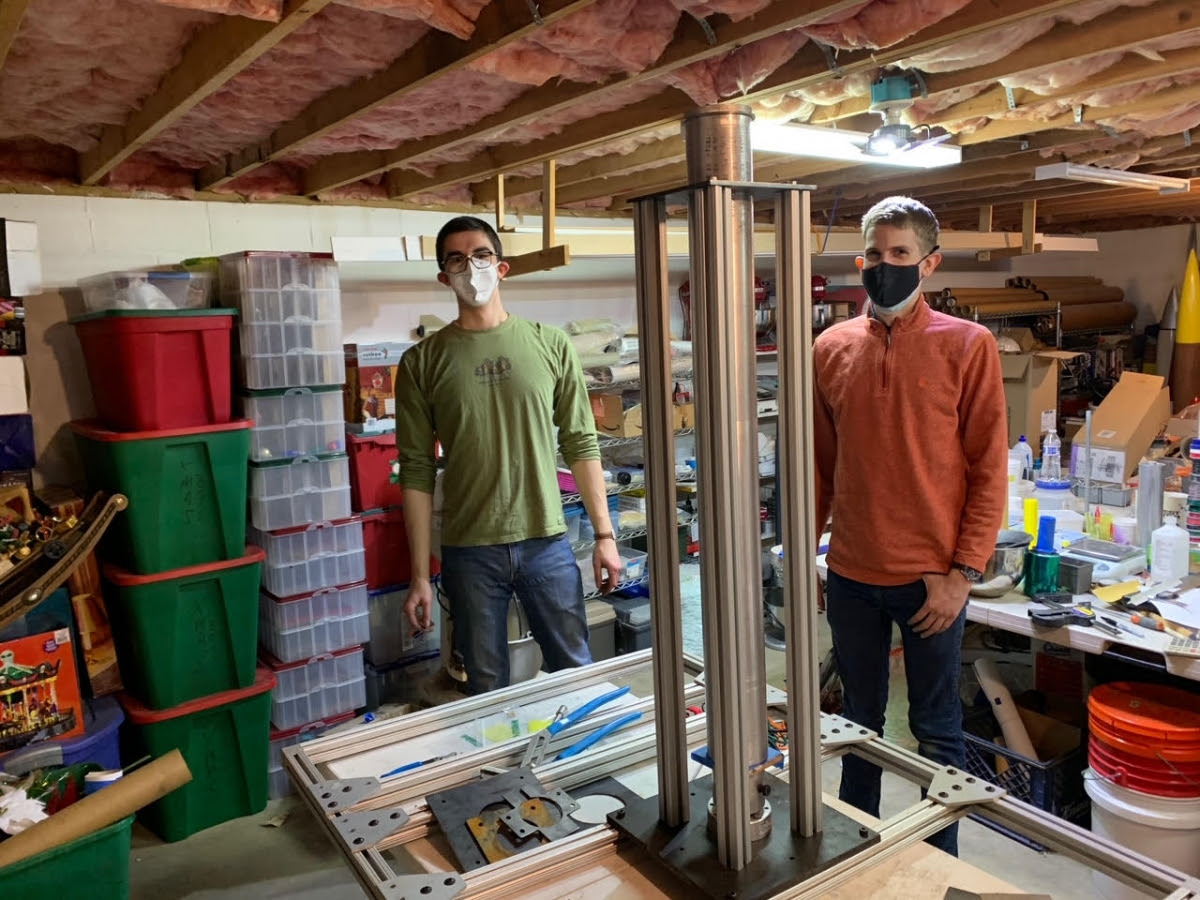SEAS Rocket Team members from left: Benjamin Wormuth, Adam Brewer, Mark Yamakaitis, Aidan Worthington, Phoenix Price, Amy Chang and Eliese Ottinger.
The GW Rocket Team won First Place in the Space Dynamics Lab Payload Competition and received an honorable mention in the 10,000 ft (altitude) Student Research and Development (SRAD) Solid Booster Competition at the 2021 Virtual Spaceport America Cup. The Spaceport America Cup is the largest collegiate rocket competition in the world. This year’s competition, held virtually during June 18-20, included 75 student teams from around the world.
The team’s winning payload, MARCO-POLO, is a low size, weight, power and cost laser communication demonstration for small satellite applications. After deployment from the rocket at apogee, the CubeSat opens up into an upper and lower half that have independent electronics systems. The lower half, named the Precisely Oriented Laser One or POLO, houses the laser gimballing and visual tracking systems used to send timing data. This data is received by the upper half, named the Miniaturized Array Receiver Cube One or MARCO, and processed to determine the offset time in milliseconds between the clocks on both modules.

Ben Wormuth and Phoenix Price with the test stand, which measures thrust produced by the student-made booster
Immediately following deployment from the GW rocket, three strands of 10” aircraft cable holding both MARCO and POLO together extend to full separation distance as POLO falls away from MARCO. These cables allow MARCO and POLO to move relative to each other while descending under parachute. To account for this relative movement, the computer vision software on POLO controls the laser gimbal to keep the laser beam focused on the photodiode receiver of MARCO. This ensures that enough timing data is transferred from POLO to MARCO to allow MARCO to perform consistent calculations of the offset between clocks on both modules.
The GW Rocket Team, advised by Dr. Murray Snyder, was led by Ben Wormuth. Payload captain Treaux Jackson led construction of the payload from his home in Kansas, supported in software and design development by both Mark Yamakaitis and Phoenix Price. Propulsion captain Ben Wormuth led assembly and testing of both the rocket and SRAD solid rocket motor, supported by Phoenix Price and Amy Chang. Recovery captain Ariana Lesniak and aerostructures captain Adam Brewer worked together to coordinate computational fluid dynamics analysis projects and other virtual learning activities for team members, while working to train their successor to take up leadership roles this fall. Other active members of this year’s team include Eliese Ottinger and Aidan Worthington.
Jackson with the winning MARCO POLO payload
The team sincerely would like to thank Dr. Murray Snyder and Dean John Lach, esteemed mentors Ben and Elaine Russell, and GW machinists Bill Rutkowski, Tom Punte, and Nick Batista, without whom the team believes their achievements during this difficult year would not have been possible. This GW Today article provides more information on the team's work to prepare for the competition.



